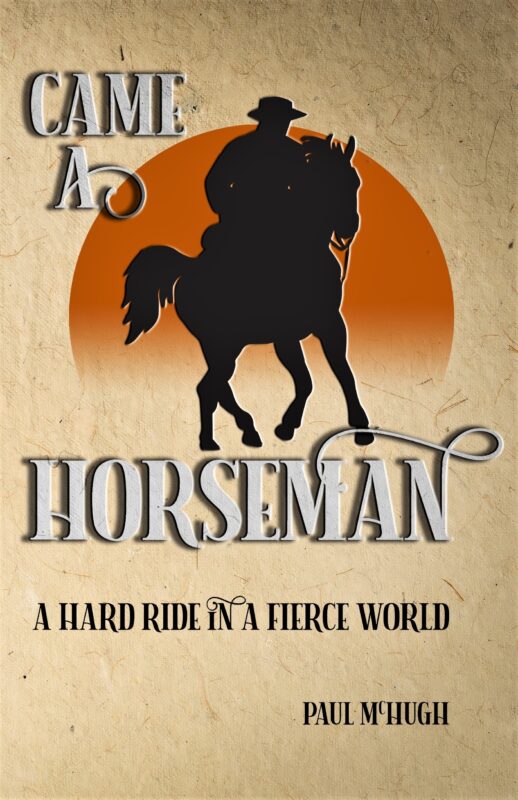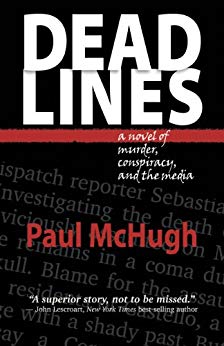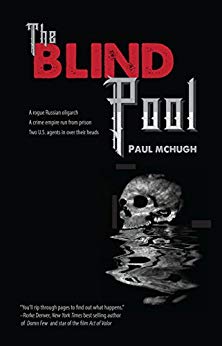
I come to your Earth of 2023 from a much different world. And that distant planet from which I arrive was Earth back in the 1950s. Okay, right, I’ll admit that doesn’t sound like much of a gap or such a grand span of years.

Yet I assure you, a shift in the quality of global life between then and now is so deep, so vast, it’s tough for anyone who lacks a similar spectrum of experience to comprehend the magnitude.
An icon that remained to me from that vibrant but vanishing past is a giant conch shell, even longer than my two spread hands. It’s one my brother plucked off a shoal of white sands near a Florida reef as we snorkeled and skin dove, way back when we were boys.
The oceans and forests of my youth teemed with marvels, miracles and mysteries that now seem to be locked on a rapid transit track aimed straight at the void. But the shell is a solid reminder of what once was.

I’d always fantasized that this shell was a “she” and a gorgeous great-grandmother of many other conchs, to boot. She’d lived a life so long and rich that the size she’d achieved was a rarity, even back in the decade when my brother George found her. Now, I doubt a diver could successfully search out any conch of a comparable heft.
I STILL SEE WHAT I SAW
She’d lived a full life, then left us. Her shell was empty and untenanted; patches of beige coral even had begun to tattoo broad curves of her back. Some time after he discovered the shell, I asked George if I could have it. Since he was preparing to trot off to join the Navy—and seemed eager to lighten his seabag, as it were—he said yes.

Luckily, I’d learned the trick of turning a conch into a horn after sawing into a number of lesser shells. The easiest mistake to make here occurs when you cut from the apex too far into its spire. If the embouchure you create grows too broad, your lips won’t fit against that opening correctly or vibrate at the proper rhythm when you seek to blow a breath of life back through the thing.
At my dad’s workshed, I clamped this shell to a rickety sawhorse with one hand, made my best guesstimate, then hacksawed into it with the other. (Tip #1: You need to deploy a dogged persistence; since, basically, you’re sawing through a hunk of solid bone. Tip #2: Afterward, use a scrap of sandpaper to smooth all edges, inside the rim of the opening and its outside.)
I sucked in a breath, pursed my lips, then tried out my new horn. A lovely tone, deep and resonant, floated forth into tropical air to hover for a while in my ears. I imagined its booming yet sweet sound as the Atlantic Ocean’s true and mystic song.
ACCEPT, BLESS, PASS ALONG

The best move you can ever make with a grand gift is simply to give it away again. Ultimately, anyhow, you’ll never be able to avoid doing so. Might as well embrace the process.
As I said to gathered tribes of the Northern California Outrigger Canoe Association (NCOCA) last June, “Everything’s a loan, including our lives.”
Materialism, selfishness, greed, rabid acquisition, hoarding of exorbitant wealth, those traits too easily generate crimes against our struggling fellows in the human family. And in any case, such foibles are useless as a genuine response to the threats that seem to animate those traits, such as our feelings of dread, despair, desperation, loneliness or a lingering terror of death.

Seek to pile up treasure as a shield, and you’ll just find yourself fighting to cram puffs of smoke into a mesh bag. It’s one more thing Jesus was right about. A heap of possessions that rust or moths can consume, or thieves might break in and steal, shall not confer upon you any durable spiritual advantage. So, the top use of a mound of lucre is to make friends for yourself with that loot for as long as it lasts.
Loving, nurturing, vibrant relationships can constitute a more trustable psychic good, whilst also making for a far happier life. Why not try that out? Maybe you’ll see those big fears that make people cling to their stuff the way Charlton Heston sought to clutch his flintlock can all gently, smoothly and steadily melt away.
These days, I find myself much closer to the finish line of my run on this planet than I am to its starting point, that’s for sure. The situation encourages a shift in perspective. And so, my redistribution of life’s gifts has begun to pick up speed. It’s about the only way in which I find myself getting any faster.
THE SEA-PEOPLE TRIBES

I decided to bequeath my big conch horn to the folks whom I thought could appreciate her best—people in outrigger canoe clubs of the NCOCA.
I’d gotten to know them in various ways. Our most frequent meetings occurred while I sought to churn past a single OC (outrigger canoe) if I came across it amid one of my race-training sessions on waters of San Francisco Bay. If I spotted an OC, I’d pursue it in my racing kayak (a Kevlar-graphite Necky Looksha II). My results were mixed. However, if I found that I couldn’t outpace a guy, I’d try to draft abaft his sternpost till he grew tired, then charge on past with a big friendly wave.

But I could never hope to beat any double-cockpit OC, a canoe that held a pair of paddlers. And what of those long but way-y slim team boats that managed to tote a crew of four to six? Fuhgeddaboudit! Still, always fun for me to observe these graceful craft in action. Especially at moments when big boat teams sprinted forward in a spirited synchronization. I mean, just seeing all those paddles splash the water at the exact same instant was a thrill.
As I’ve said, the best part of my gig as a journalist was that pro license I’d won to put a question to just about anyone. Plus, after many years working at the Chronicle, I’d earned an ability to issue my own assignments. Fully intrigued by what I saw out on the Bay, I gave myself the job of writing a story about Northern California’s OC clubs.
A feature on them ran in my newspaper in the fall of ’97. My opening graph read: “Doomsayers lament that the ‘consumerist’ culture has swept the globe like a tsunami, erasing pockets of ethnic identity. Yet one vehicle does paddle vigorously against this tide—the Polynesian outrigger canoe.”
A favorite quote inside that story came from a Tongan woman who said, “For Polynesian people, it gives us great pride to see others take up something we love and share that feeling.”
HOPE IS A THING WITH PADDLES

That woman was Marilyn Steele, then-president of the NCOCA as well as a founding member of its Sacramento chapter, “Hui O’ Hawaii,” launched in ‘78.
Welcome and warmth and camaraderie within this bunch seemed to me to be of a type and of a power that would last. And they’ve done so. Chapters of the outrigger canoe group multiplied, and memberships did too. A SF Bay Area race date now sees hundreds of fit, happy and friendly people show up to cheer each other on.

On that memorable day when I gave away this horn, participants heard me tell how my grandmother shell had been found and repurposed. We stood out on the west shore of Alameda Island near the Encinal launch ramp as I described its epic trek through ceremonies: some to summon attention at meetings, other blasts released on holidays; many toots bleated to celebrate weddings; some blessed a final voyage of loved ones while plumes of their ashes drifted away during burials at sea.

I gave one farewell blast to the crowd of paddlers. Next, at his behest, I offered a few more toots to accompany race chairman Junior Wright. He had a smaller (as likely any would be) conch horn of his own. Our high and low notes blended in a sweet chord. Then I handed it over.
RECORD OF A SEISMIC SHIFT
My dives on reefs off the Florida Keys awarded me the pleasure of visits to a wondrous realm that I saw as the primeval cradle and current refuge of myriad species. After looking at reefs, I could imagine porpoises taking one final glance at the land and squeaking, “Hey bro, nah, us gonna go right back into that nice water.”

I recall soaring above narrow coral gulches rimmed by ramparts where ocher brain corals bulged like a cluster of beach umbrellas, and brown staghorns jutted up as plentiful as saplings in a grove of spruce. Where purple sea fans and dead man’s fingers waved, and fire corals glowed an international don’t-fuck-with-me orange, where the dark shadow of a big hammerhead might writhe slowly over a reef holding all these vibrant shapes and colors, prompting a skin diver to decide to pause for a while down among those corals before daring to make an ascent.
Whereupon galaxies of glittering baitfish would seem to part almost reluctantly to permit his passage back up toward that blue, blue tropic sky.
Since the day I was born, the number of human beings attempting to lodge upon this planet has tripled. During that span, our count of bodies shot from 2.5 billion to 7.7 billion. Florida alone hosts ten times the population that state did when I was a boy. And just about every single damn one in that mob of denizens lusts to own a house, a car, washer, dryer, grill, fridge… and wants to be fully empowered to swill coffee, burgers, sushi or chocolates on demand, every bit as much as I do. Oh yeah, they’d prefer reliable AC too, since every town for many leagues around has been getting too darn hot, lately. Not to mention all o’ that dadgum humidity.

Say, what’s a wet-bulb reading, again? Got something to do with trying to measure how all those heat stresses add up for us, right? So, um, is it a bad thing? Ain’t we way better off not knowing?
Way back when, the Dixie Highway from Homestead to Miami was a two-lane blacktop perched on muddy fill that writhed through 35 miles of swamp and brush. Nowadays that route has turned into a multilane toll expressway with nary a water moccasin, a ‘gator, a panther or even a firefly able to traipse anywhere near it.
Thirty years ago—roughly half the time span that I speak of—I went back to visit the coral reefs where I swam as a boy. I found they’d turned mossy, green and lackluster. They were a paltry and faded expanse of slowly toppling tombstones, far from that lordly, submarine Atlantis they’d once been.
Since then, Florida’s cocktail of offshore pollutants has steadily increased, while the sea’s water temperatures have surged up to hot tub levels. I now find that I can’t bear the thought of diving again in those places to observe more of the consequences.
A YEN TO SAIL EVER ONWARD

Taking a broad view, the path of humanity has not always and only been one of destruction. We do seek to improve. For example, our ships no longer belch clouds of coal ash from their smokestacks. Our automobiles no longer squirt out half-burned gas laden with lead fumes. Marine preserves have been declared. Some nations establish ocean harvest rules and try to enforce them.
Still, our cartoonists are having a thematic heyday as they compare us humans to dinosaurs who love to crash a party with our very own host gift asteroids tucked under our stubby lil’ arms.
I’d put it this way. It’s obvious we can’t continue to screw things up at such a torrid pace. We’re nearing an evolutionary bottleneck and—clearly!—not everyone or everything on earth shall make it through to the other side.
But I’ve also learned from a number of extreme situations in my own life that a durable optimism can be a major tool for survival. Blind yourself with despair, and you’ll never spot an opportunity for hope. A fine opportunity can be seized by forming tight and loving tribes who appreciate nature, personal health, and social camaraderie. These are the most basic and essential political entities. They thrive as their members help each other to give and to live.
Meantime, whilst all of this great mess sorts itself out, I hope the musical call from a conch shell horn shall offer us a signal, not to retreat, but to advance.









